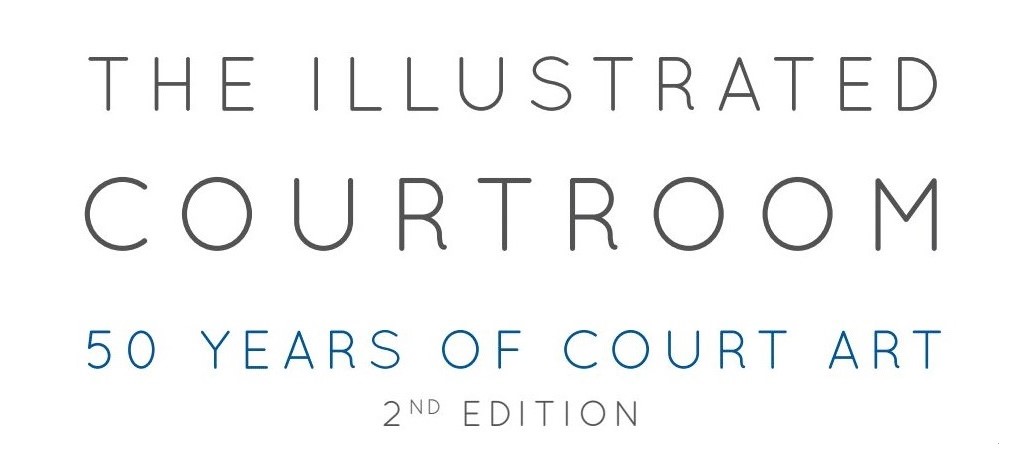In 1969 Howard Brodie, the dean of
courtroom art and revered artist from CBS news, covered the Chicago Seven
trial. He had covered the infamous Jack Ruby trial 5 years prior to this case.
The original eight defendants indicted by the grand jury on March 20,
1969, were Abbie Hoffman, Jerry Rubin, David Dellinger, Tom Hayden, Rennie
Davis, John Froines, Lee Weiner, and Bobby Seale. Seale was eventually severed from the original eight.
The trial of the “Chicago Seven”
began before Judge Julius Hoffman in the fall of 1969. The defendants, including David Dellinger
of the National Mobilization Committee to End the War in Vietnam (MOBE); Rennie
Davis and Tom Hayden of MOBE and Students for a Democratic Society (SDS);and
Jerry Rubin and Abbie Hoffman of the Youth International Party (Yippies), were
accused of conspiring to incite a riot at the 1968 Democratic National
Convention.
 |
| Brodie caption says" told me he was on an acid trip" |
At the height of the antiwar and civil rights movements, these young leftists had organized protest marches and rock concerts at the 1968 Democratic National Convention. During the event, clashes broke out between the protesters and the police and eventually turned into full-scale rioting, complete with tear gas.
 |
| Brodie caption reads: Seale "Cool" Panthers, " Heart" America |
 |
| Brodie caption reads' " I have seen white men chained and gagged in a Calif court" Seale being removed from the courtroom |
 |
| Brodie caption: Marshals surrounding defendants Amazing drawing by Brodie, intense situation is captured beautifully. What a master. |
A long round of appellate action ensued. It began with the contempt verdicts. On May 11, 1972, the Seventh Circuit Court of Appeals reversed all of these convictions on grounds that, because Judge Hoffman had been targeted by the attack, due process dictated that he should not sit in judgment on the contempt charges.
In November 1972 the appellate court overturned all five incitement to riot convictions, citing numerous errors by Judge Hoffman and the prosecution attorneys. In particular, they denounced Judge Hoffman's "deprecatory and often antagonistic attitude toward the defense." Scale, too, had his conviction overturned.
The government elected not to retry the incitement case, but did proceed on the contempt charges, with the result that in November 1973, Dellinger, Kunstler, Hoffman, and Rubin were again convicted. However, Judge Edward Gignoux signaled an end to the whole unsavory affair by deciding that the imposition of further jail sentences was unwarranted.
Read more: Chicago Seven Trial: 1969 - Guilty Verdicts Multiply - Hoffman, Judge, Contempt, and Conspiracy - JRank Articles http://law.jrank.org/pages/3191/Chicago-Seven-Trial-1969-Guilty-Verdicts-Multiply.html#ixzz43P8qCoDw
J


No comments:
Post a Comment